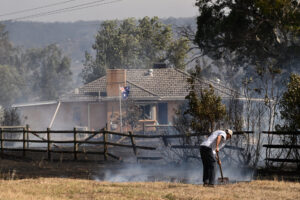The Climate Change Authority’s final report on the renewable energy target, which was released yesterday, contains a number of controversial conclusions and recommendations. A standout amongst these is the recommendation that the federal government explore whether making native forest wood waste eligible to participate in the large-scale RET (LRET) would increase the rate of harvesting in native forests and, if not, to reinstate it ‘subject to appropriate accreditation processes designed to ensure that no additional logging occurs as a result’. This finding is based on the Authority’s view that: “If a forest would have been logged in any event, then burning the wood waste in a power station is a better environmental outcome – in greenhouse gas emission terms – than burning the waste alone or allowing it to decompose.” At a distance, this appears to be a statement of the patently obvious. Surely, if wood waste from harvesting is used to generate electricity, it will displace fossil fuel-based generation and thereby reduce greenhouse gas emissions? Although logically appealing, this is incorrect.
Related documents
Between the Lines Newsletter
The biggest stories and the best analysis from the team at the Australia Institute, delivered to your inbox every fortnight.
You might also like
Why a fossil fuel-free COP could put Australia’s bid over the edge
When the medical world hosts a conference on quitting smoking, they don’t invite Phillip Morris, or British American Tobacco along to help “be part of the solution”.
Conflict of Interest Concerns Spread to Climate Authority after PwC Scandal
The Minister for Climate Change and Energy has been urged to review potential conflicts of interests at Australia’s key climate change agency in light of the integrity scandal at PwC and the consulting services sector.
Burning homes and rising premiums: why fossil fuel companies must pay the bill
Another summer, another round of devastation: homes lost, communities evacuated, lives upended.



